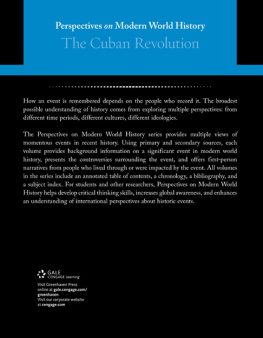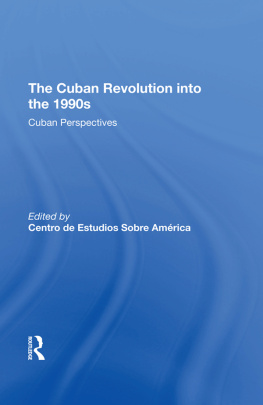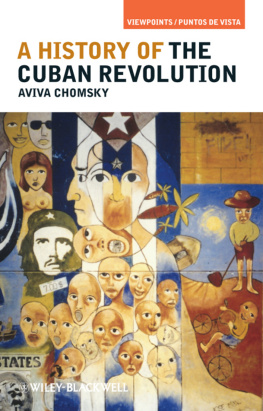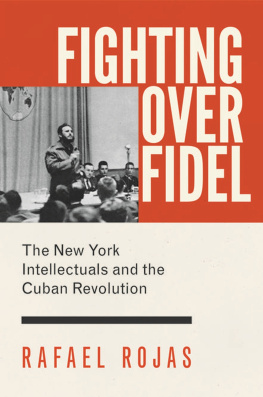Treviño - C. Wright Mills and the Cuban Revolution
Here you can read online Treviño - C. Wright Mills and the Cuban Revolution full text of the book (entire story) in english for free. Download pdf and epub, get meaning, cover and reviews about this ebook. publisher: University of North Carolina Press, genre: Politics. Description of the work, (preface) as well as reviews are available. Best literature library LitArk.com created for fans of good reading and offers a wide selection of genres:
Romance novel
Science fiction
Adventure
Detective
Science
History
Home and family
Prose
Art
Politics
Computer
Non-fiction
Religion
Business
Children
Humor
Choose a favorite category and find really read worthwhile books. Enjoy immersion in the world of imagination, feel the emotions of the characters or learn something new for yourself, make an fascinating discovery.

C. Wright Mills and the Cuban Revolution: summary, description and annotation
We offer to read an annotation, description, summary or preface (depends on what the author of the book "C. Wright Mills and the Cuban Revolution" wrote himself). If you haven't found the necessary information about the book — write in the comments, we will try to find it.
C. Wright Mills and the Cuban Revolution — read online for free the complete book (whole text) full work
Below is the text of the book, divided by pages. System saving the place of the last page read, allows you to conveniently read the book "C. Wright Mills and the Cuban Revolution" online for free, without having to search again every time where you left off. Put a bookmark, and you can go to the page where you finished reading at any time.
Font size:
Interval:
Bookmark:
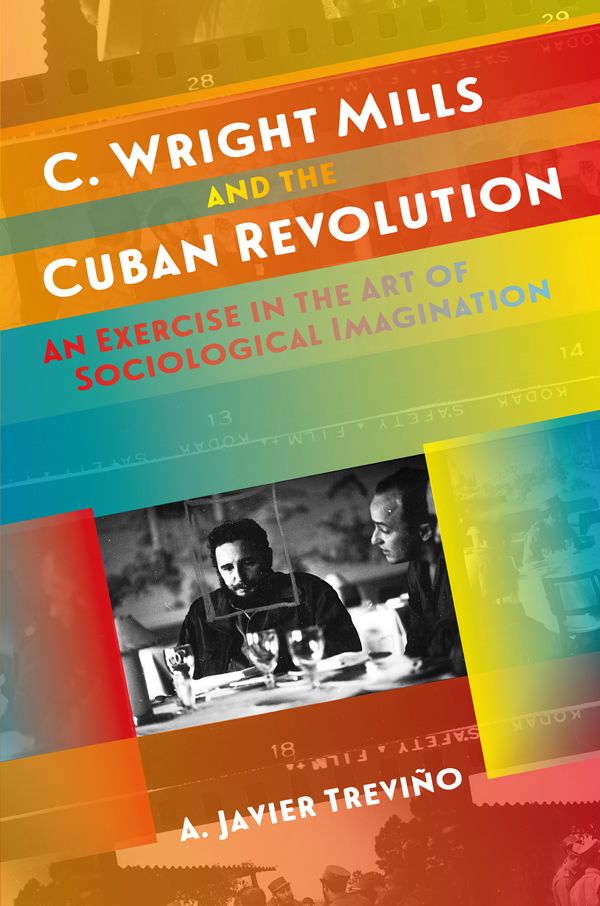
C. Wright Mills and the Cuban Revolution
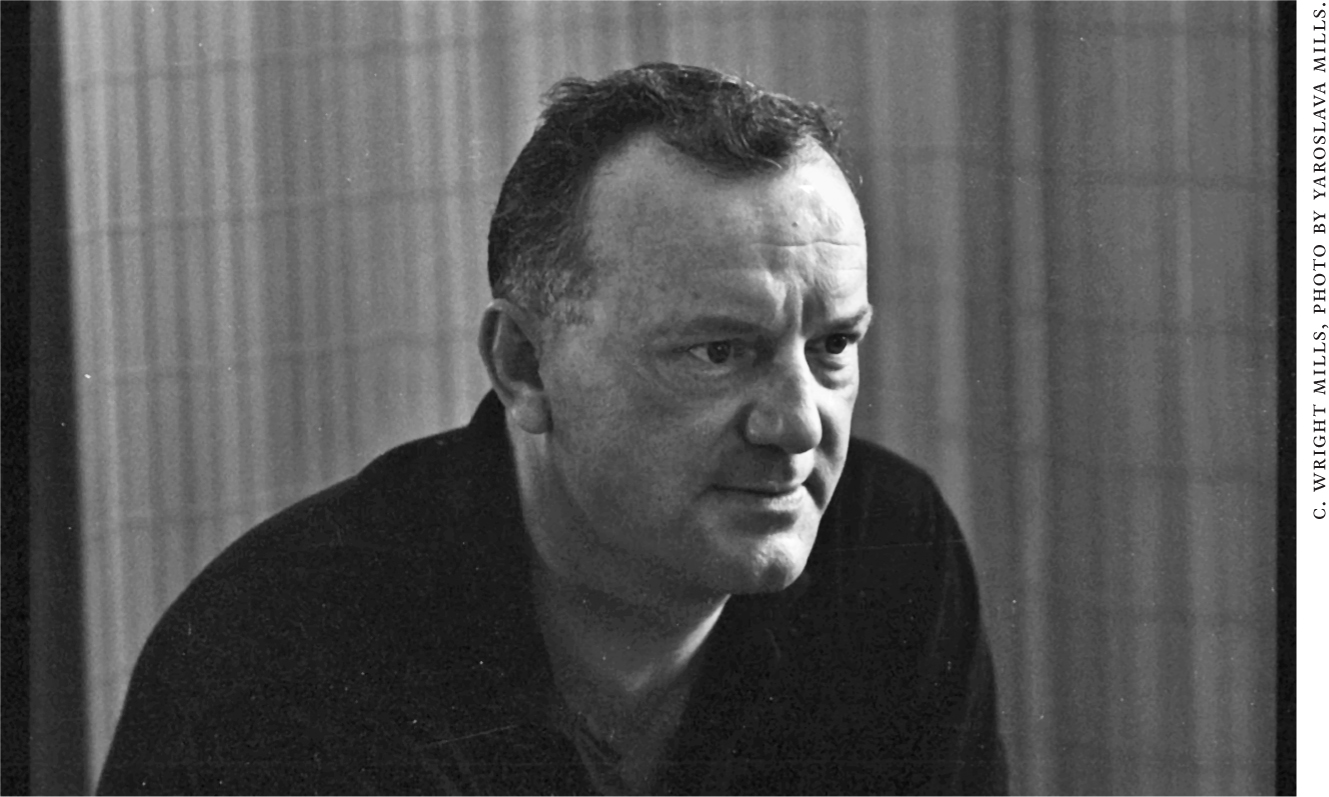
ENVISIONING CUBA
Louis A. Prez Jr., editor
Envisioning Cuba publishes outstanding, innovative works in Cuban studies, drawn from diverse subjects and disciplines in the humanities and social sciences, from the colonial period through the postCold War era. Featuring innovative scholarship engaged with theoretical approaches and interpretive frameworks informed by social, cultural, and intellectual perspectives, the series highlights the exploration of historical and cultural circumstances and conditions related to the development of Cuban self-definition and national identity.
C. Wright Mills and the Cuban Revolution
An Exercise in the Art of Sociological Imagination
A. Javier Trevio
The University of North Carolina Press CHAPEL HILL
2017 The University of North Carolina Press
All rights reserved
Set in Espinosa Nova by Westchester Publishing Services
Manufactured in the United States of America
The University of North Carolina Press has been a member of the Green Press Initiative since 2003.
Library of Congress Cataloging-in-Publication Data
Names: Trevio, A. Javier, 1958 author.
Title: C. Wright Mills and the Cuban Revolution : an exercise in the art of sociological imagination / A. Javier Trevio.
Other titles: Envisioning Cuba.
Description: Chapel Hill : University of North Carolina Press, [2017] | Series: Envisioning Cuba | Includes bibliographical references and index.
Identifiers: LCCN 2016047327 | ISBN 9781469633091 (cloth : alk. paper) | ISBN 9781469633107 (pbk : alk. paper) | ISBN 9781469633114 (ebook)
Subjects: LCSH: Mills, C. Wright (Charles Wright), 19161962. Listen, Yankee. | Mills, C. Wright (Charles Wright), 19161962. | CubaHistoryRevolution, 1959Interviews. | SociologistsUnited StatesHistory20th century.
Classification: LCC HN203.5 .T74 2017 | DDC 306.097291dc23 LC record available at https://lccn.loc.gov/2016047327
Cover illustrations: Photographs by C. Wright Mills. 2017 Nikolas Mills. All rights reserved.
Contents
Chronology of Events
1948
Publication of The New Men of Power: Americas Labor Leaders
1950
Publication of Puerto Rican Journey: New Yorks Newest Migrants by Mills, Clarence Senior, and Rose Kohn Goldsen
September 1951
Publication of White Collar: The American Middle Classes
March 9, 1952
Fulgencio Batista seizes power in Cuba
July 26, 1953
Students led by Fidel Castro attack the Moncada barracks in Santiago de Cuba in an attempt to spark a revolt against the Batista dictatorship
September 1953
Publication of Character and Social Structure: The Psychology of Social Institutions by Gerth and Mills
October 16, 1953
Fidel Castro makes History Will Absolve Me defense speech. Castro and thirty-one Moncadistas are sentenced to the Presidio Modelo prison on the Isle of Pines.
April 1956
Publication of The Power Elite
December 2, 1956
Fidel Castro, Ernesto Ch Guevara, and eighty other guerrilla fighters disembark from the yacht Granma in Oriente province.
May 19, 1957
Robert Tabers documentary Rebels of the Sierra Maestra: The Story of Cubas Jungle Fighters airs on CBS
1958
Publication of The Causes of World War Three
1959
Publication of The Sociological Imagination
January 1, 1959
Batista flees Cuba, and the 26th of July Movement, led by Fidel Castro, assumes power
May 17, 1959
The Revolutionary government implements the Agrarian Reform Law limiting the size of farms to 3,333 acres and real estate to 1,000 acres
January 1960
Robert Taber and Alan Sager found the Fair Play for Cuba Committee
JanuaryFebruary 1960
Planes from Florida engage in bombing and sabotage missions to Cuba
JanuaryMarch 1960
Mills teaches a seminar on Marxism at the National University of Mexico
February 413, 1960
Soviet Deputy Premier Anastas Mikoyan visits Cuba to negotiate economic and trade agreements with Castro
February 22March 20, 1960
Jean-Paul Sartre and Simone de Beauvoir visit Cuba
March 4, 1960
French munitions freighter La Coubre explodes while being unloaded in Havana harbor
March 17, 1960
Eisenhower approves plan for the invasion of Cuba by exiles
April 20May 20, 1960
Mills travels to the Soviet Union for the first time
July 9, 1960
Soviet Premier Nikita Khrushchev announces that the Soviet Union will provide Cuba with military aid in case of U.S. attack
Summer 1960
Mills meets with Ian Ballantine about publishing Listen, Yankee
August 824, 1960
Mills visits Cuba and interviews Cuban revolutionaries
September 9, 1960
Confidential informant T1 tells the FBI that Mills had been to Cuba and conducted interviews with Cuban officials
September 1960
Castro addresses the UN General Assembly. Stays at Theresa Hotel in Harlem and meets with Mills and others at a reception at the hotel.
October 19, 1960
The United States imposes an embargo on exports to Cuba (except for food and medicine)
October 26, 1960
FBI Director J. Edgar Hoover reviews manuscript of Listen, Yankee
November 1960
Publication of Listen, Yankee: The Revolution in Cuba . John F. Kennedy is elected president. Mills delivers talk, How to Improve Relations with Cuba and South America, to an audience of Americans for Democratic Action in New York City.
December 1960
Excerpts from Listen, Yankee appear in Harpers magazine. Mills suffers a major heart attack. The New York FBI office begins a discreet preliminary investigation of Mills.
January 1961
Lawsuit against Mills and Ballantine Books, publisher of Listen, Yankee , is filed. The Eisenhower administration severs all diplomatic relations with Cuba and bans travel to the island. Cuban government launches Literacy Campaign.
April 17, 1961
Invasion of Cuba at the Bay of Pigs
April 24, 1961
Mills and family leave for Europe and the Soviet Union
April 27, 1961
First and second editions of the Spanish translation of Listen, Yankee Escucha, yanqui are issued in Mexico by the publishing house Fondo de Cultura Econmica
June 1961
Mills meets with Jean-Paul Sartre and Simone de Beauvoir in Paris
July 1961
Publication of the third edition of Escucha, yanqui with the update, Escucha otra vez, yanqui
December 2, 1961
Castro declares, I am a Marxist-Leninist
Late March / early April 1962
Publication of The Marxists
January 27, 1962
Mills and family return to the United States
March 20, 1962
Mills dies of heart failure
April 16, 1962
The New York FBI office submits its closing report on Mills
December 17, 2014
President Barack Obama announces the restoration of full diplomatic relations with Cuba, after fifty-five years of antagonism
C. Wright Mills and the Cuban Revolution
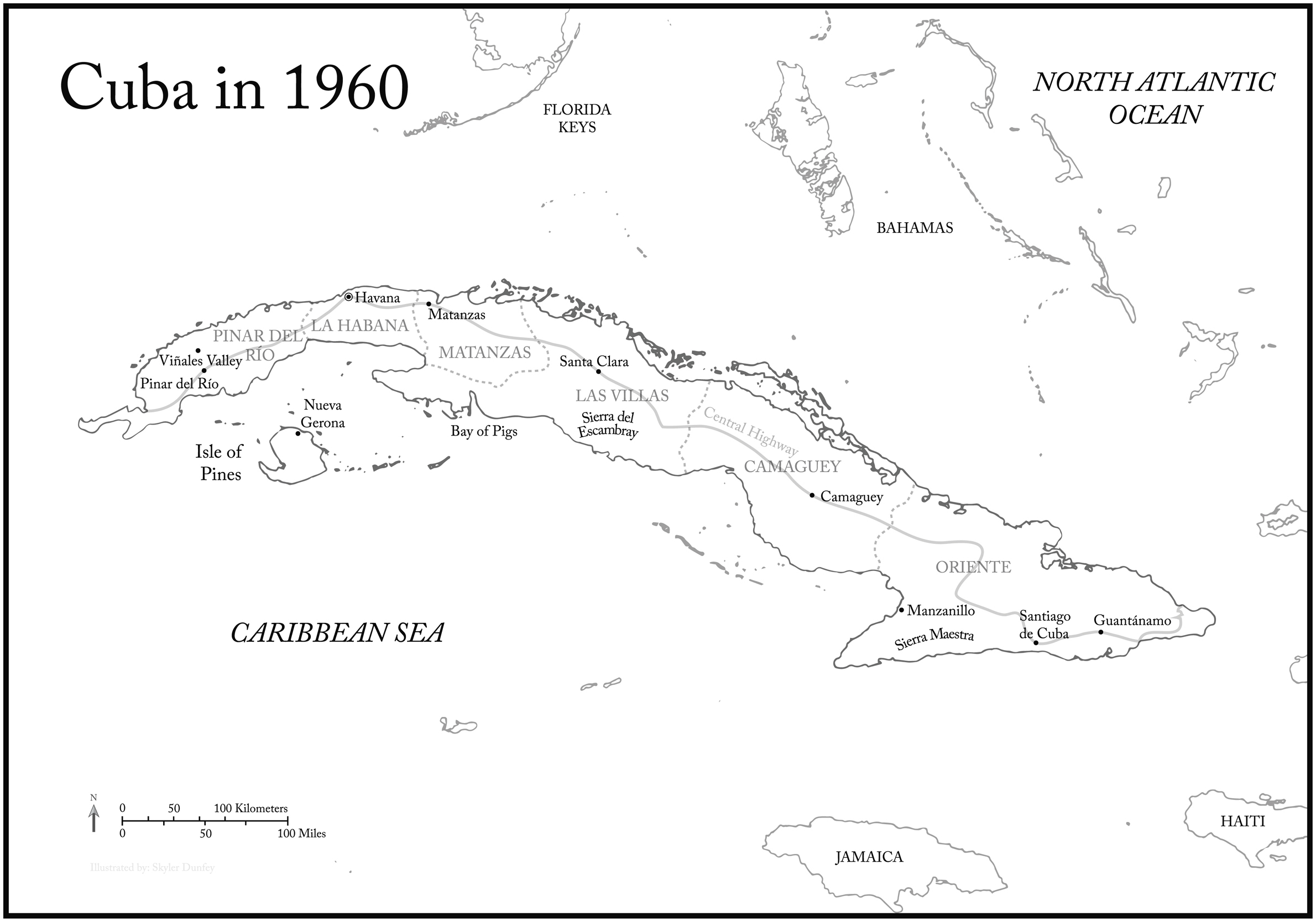
Introduction
The North American sociologist C. Wright Mills traveled to Cuba, once, to experience firsthand that islands transition to a new sovereign state, some eighteen months after the triumph of its Revolution. Upon returning to the United States, Mills wrote a small paperback on much of what he had heard and seen, which he titled Listen, Yankee: The Revolution in Cuba . As he explains in the opening sentence, This book reflects the mood as well as the contents of discussions and interviews with rebel soldiers and intellectuals, officials, journalists and professors in Cuba, during August, 1960.
Font size:
Interval:
Bookmark:
Similar books «C. Wright Mills and the Cuban Revolution»
Look at similar books to C. Wright Mills and the Cuban Revolution. We have selected literature similar in name and meaning in the hope of providing readers with more options to find new, interesting, not yet read works.
Discussion, reviews of the book C. Wright Mills and the Cuban Revolution and just readers' own opinions. Leave your comments, write what you think about the work, its meaning or the main characters. Specify what exactly you liked and what you didn't like, and why you think so.

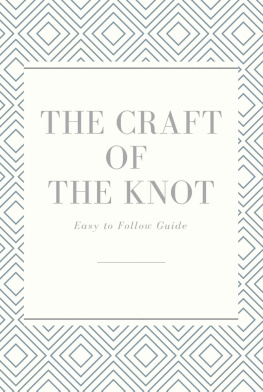
![Trevino - #[Your]HarveyWeinstein](/uploads/posts/book/106652/thumbs/trevino-your-harveyweinstein.jpg)
